Published on: March 14, 2024
11 Must-Read Books to Understand Artificial Intelligence
Author: Inge von Aulock

In a world where robots may outnumber us, understanding the Artificial Intelligence (AI) behind them is no longer optional—it’s imperative.
Diving into the complexities of artificial intelligence can be daunting, so we’ve gathered insights from Software Engineering experts to AI industry founders to guide your journey. But who has the time to sift through them all? Explore the top 11 book recommendations and the important components provided by these business and tech experts.

Welcome to the shortlist.
- Artificial Intelligence: A Modern Approach
- Artificial Intelligence: A Guide for Thinking Humans
- AI Made Simple
- Artificial Intelligence Basics
- Life 3.0
- The Master Algorithm
- AI Superpowers
- Predictive Marketing
- The Age of AI: And Our Human Future
- Deep Learning
- The Coming Wave
Understanding the basics of artificial intelligence
Before we embark on an in-depth exploration of the best books for AI learning, let’s first make sure we’re all on the same page about the concept itself and its importance.
What is artificial intelligence?
Artificial Intelligence. What comes to mind? Robots? It’s much more than just robotics. And yet, the concept is still too often misunderstood.
AI is a branch of computer science that deals with creating smart machines capable of performing tasks that would typically require the human brain. These tasks may include speech recognition, learning, problem-solving, and decision-making. These intelligent machines are specifically programmed to learn and adapt from experience, just as humans do. With AI, the perspective is to mimic human intelligence in a machine.
The importance of AI in today’s world
Every coin has two sides; AI is no different. It has its pros, and it has its cons.
AI has become an integral part of every industry, from finance to healthcare, from entertainment to even the culinary sector. It plays a critical role, whether it’s powering Siri on your iPhone to provide you with optimal routes to your destination, an algorithm that offers movie suggestions on Netflix, or facilitating a surgeon to operate with unparalleled precision during robotic surgery.
The benefits of AI are endless. It can perform repetitive tasks more accurately than humans, thus eliminating errors caused by human fatigue. It enables 24/7 productivity as machines don’t need breaks, and they can process huge amounts of data and provide output quicker than any human ever could.
AI’s power lies in its ability to learn and adapt. Using Machine Learning (ML) and Deep Learning, AI can teach itself to improve its functionality. This ability to learn and adapt makes AI more accurate in its operations, leading to better outputs.
But we also need to acknowledge the associated challenges. Concerns regarding job losses, bias, data privacy, and security are valid. The socio-economic impacts of human-compatible AI adoption require serious attention and careful policy interventions.
AI books for beginners: Start your journey with confidence
Books are your friend when dipping your toes in the vast ocean of artificial intelligence- they provide context, concepts, and case studies in digestible formats. Here’s a rundown of books for beginners to kickstart their AI journey.
Artificial Intelligence: A Modern Approach
First-rate, comprehensive, and notably accessible, this gem equips you with an all-rounded understanding of AI basics. It’s a brilliant starting point with a balance of theoretical insights and practical applications. While it covers sprawling areas of AI, it never diverts from being an engaging read.
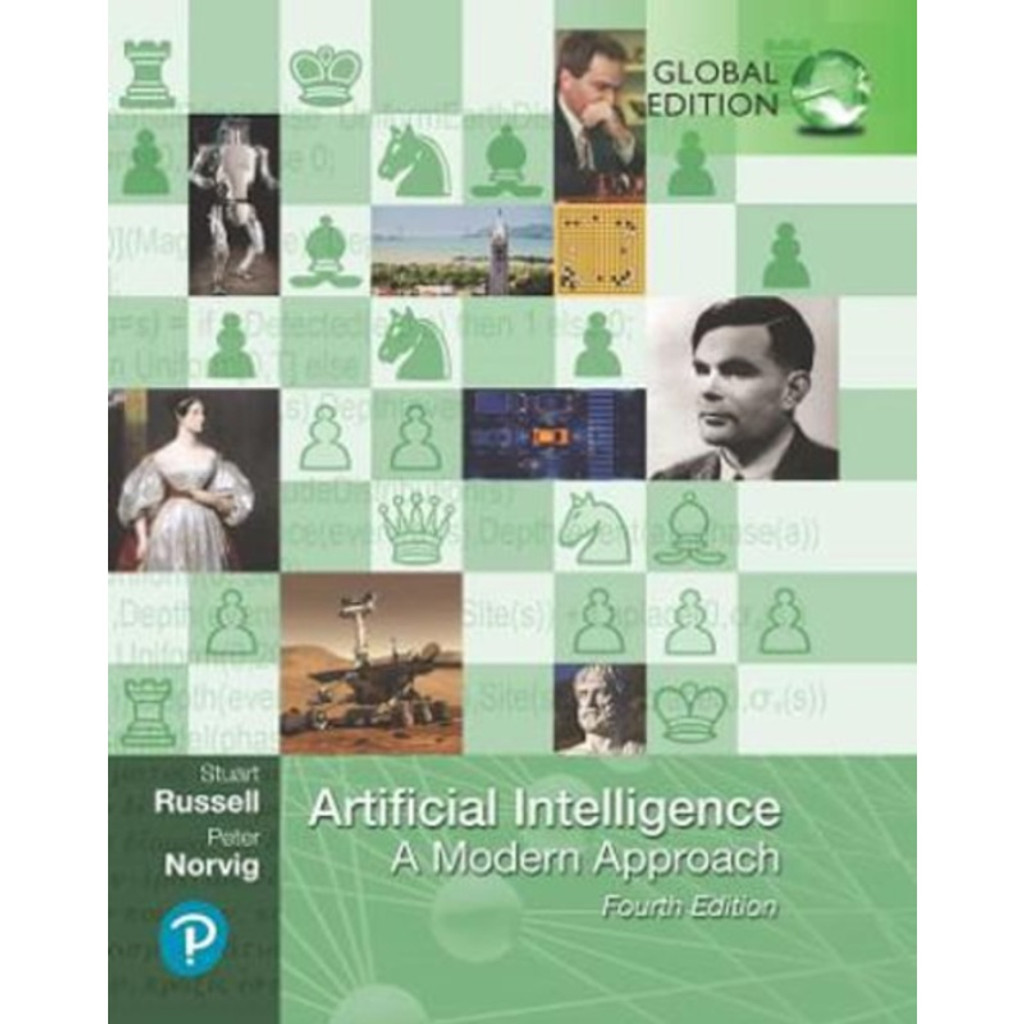
Here’s what the experts are saying:
I highly recommend Artificial Intelligence: A Modern Approach by Stuart Russell and Peter Norvig. This comprehensive textbook offers a clear and engaging introduction to the core concepts, techniques, and applications of AI.
My biggest takeaway is the vast potential of AI, not just for technological advancements but also to improve various aspects of our lives, from healthcare and education to environmental sustainability. However, it’s crucial to approach AI development and deployment with careful consideration of ethical and societal implications.
Julian Bruening, CEO, MLP Software Development

Artificial Intelligence: A Guide for Thinking Humans
Reading “Artificial Intelligence: A Guide for Thinking Humans” by Melanie Mitchell offers a comprehensive exploration of AI’s complexities, limitations, and potential. It helps readers understand AI’s impact on society, ethics, and future developments. The book is beneficial for gaining a nuanced perspective of AI, beyond the hype, making it accessible for both experts and novices interested in the implications of AI technologies on human life.
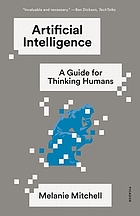
Artificial Intelligence: A Guide for Thinking Humans by Melanie Mitchell.
In this book, Melanie Mitchell provides a comprehensive yet accessible overview of AI, covering its history, key concepts, current state, and future implications.
My biggest takeaway from Artificial Intelligence: A Guide for Thinking Humans is the importance of understanding the limitations and challenges inherent in AI systems.
Despite the remarkable progress in AI research and development, AI still falls short in many aspects compared to human intelligence.
Mitchell emphasizes the need for critical thinking and skepticism when assessing AI capabilities and applications, highlighting the risks of overhyping or misinterpreting AI’s potential.
Marissa Sabrina, Creative Director, LeadLearnLeap

AI Made Simple
This book by Rajeev Kapur dives into the revolutionary change brought about by generative AI, touching nearly every aspect of our lives. It aims to demystify AI technology in an easy-to-understand manner, using examples of actual content produced by generative AI. The book seeks to be a comprehensive guide for those intrigued by AI’s potential or feeling overwhelmed by its implications, making it accessible to everyone interested in the future of technology.

Given that AI is relatively new to the scene, a surge of books has been published that cover anything from the basics to how to utilize it in something as advanced as CNC machining. Fortunately, I only need some more information regarding the former, and I found just that in the book, AI Made Simple by Rajeev Kapur.
Published in September 2023, this book has some of the most up-to-date information on the practical uses of AI in business and society. It’s beginner-friendly, which I appreciated considering how new AI is, while offering engaging and flat-out interesting ways that generative AI can be applied. I didn’t know the potential that AI has, and also didn’t understand the full implications that AI presents in terms of ethics and content creation.
It forgoes all the buzzwords associated with AI and skates straight through complicated explanations of it, deep-diving into what it is, how it works, where it can go, ethical concerns, and innovative applications.
Brett Downes, Founder, Haro Helpers

Artificial Intelligence Basics
This is an accessible entry point into the world of AI for those without a technical background. The book covers fundamental concepts, applications, and the future potential of AI in various industries, making it a valuable resource for beginners looking to understand the impact and opportunities of artificial intelligence in today’s world.

When I first heard about AI, it all sounded a bit too science-fiction to me. I couldn’t quite understand how it would be relevant to me, or to my industry. However, over the past couple of years, AI has really come to the fore, and many of us are using these technologies in daily life without even thinking about it.
I’ve always had an analytical mind, and I want to properly understand something if I’m going to use it. However, coming from a legal, rather than a tech, background, I admit I was a little daunted. A friend suggested I read Tom Taulli’s book: Artificial Intelligence Basics: A Non-Technical Introduction, and I found it really helpful. It was well-written, clear, and concise, breaking down complex concepts in a way that was easy to understand.
Some books about AI assume a certain level of knowledge already, and this can disrupt the flow if you have to keep looking up words and terms. This book was straightforward without being patronizing and contained all the information I needed. I like how Taulli offers a broad overview of how AI impacts different industries and gives relatable examples and explanations. I think my main takeaway from this book is that AI doesn’t have to be intimidating. It is a technology which, used properly, has a lot of positive potential.
Martin Gasparian, Attorney and Owner, Maison Law

Intermediate and advanced AI books: Deepen your understanding and skills
Life 3.0
Life 3.0 delves into scenarios that could unfold as AI advances, from the enhancement of human cognitive abilities to the ethical and societal dilemmas posed by autonomous machines. This book encourages readers to consider the long-term implications of AI, promoting a proactive approach to ensuring that technology enhances human life rather than diminishes it.
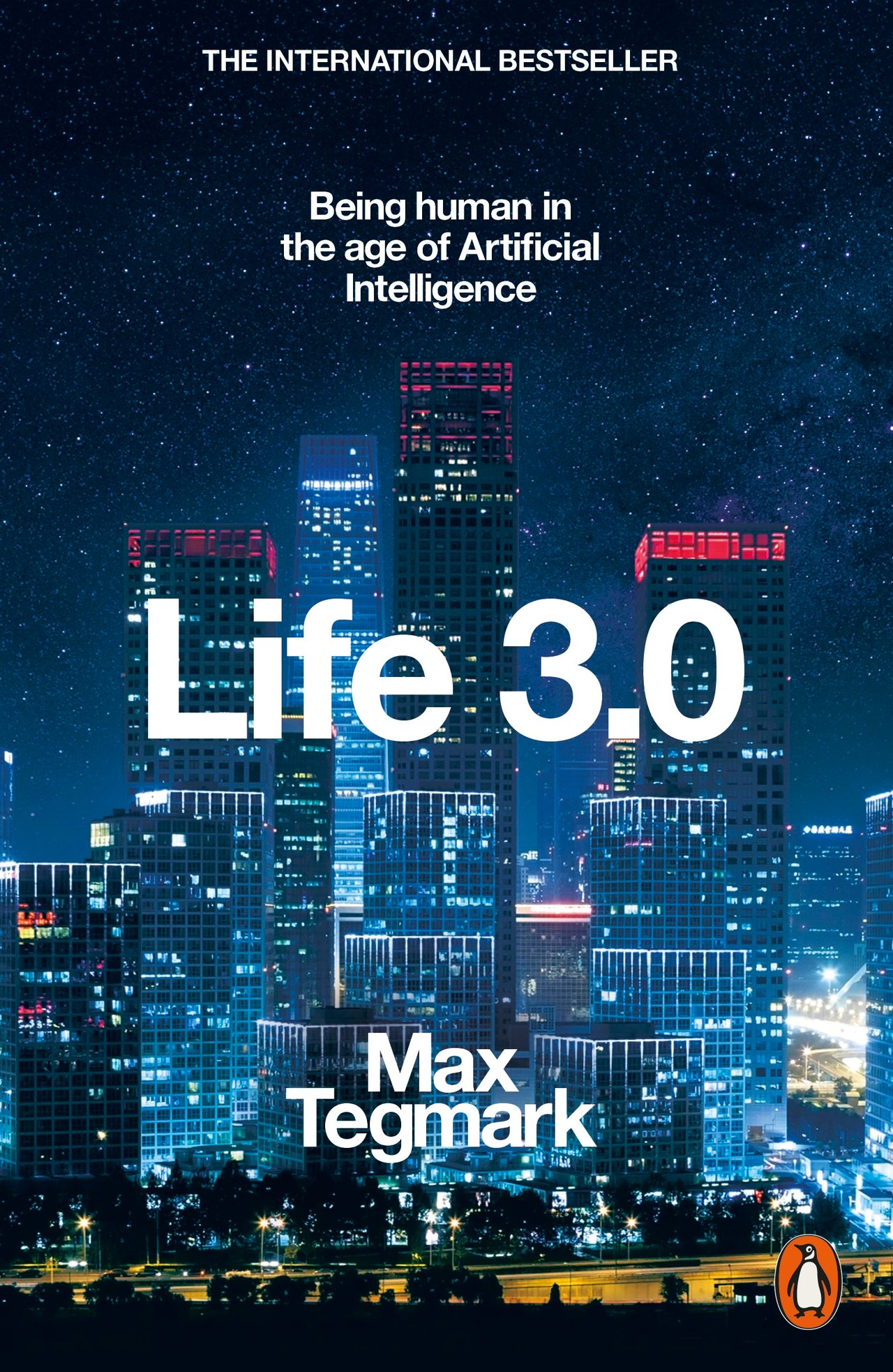
I absolutely recommend Life 3.0: Being Human in the Age of Artificial Intelligence by Max Tegmark. Rather than focusing solely on the technical aspects of AI, this book ignited my imagination with its exploration of the potential for AI to reshape society and even redefine what it means to be human. Tegmark’s emphasis on goal alignment became my biggest takeaway. If we create powerful AI systems without carefully aligning their objectives with human values, we risk unintended and potentially disastrous consequences. The book highlights the responsibility we hold as developers to integrate ethics and foresight into every stage of AI development, ensuring that the technology we create ultimately serves humanity in positive and beneficial ways.
Ashish Bist, Software Engineering Manager, Webuters Technologies

The Master Algorithm
Reading “The Master Algorithm” by Pedro Domingos introduces the concept of a universal machine learning algorithm capable of deriving all knowledge from data. It benefits readers by offering a broad understanding of how machine learning technologies are shaping our world, providing insights into the theoretical underpinnings of AI and its applications across various industries. Domingos demystifies complex concepts, making the book accessible to both technical and non-technical audiences interested in the future of AI and its impact on society.

The Master Algorithm by Pedro Domingos is an outstanding gem. This book is more than simply an AI guide; it’s a roadmap that makes machine learning and AI algorithms understandable and approachable.
The idea that there is more than one method to artificial intelligence is what I took away from The Master Algorithm most. Domingos presents the idea of a hypothetical universal learner, or The Master Algorithm, that can extract all information from data. It’s an interesting idea that highlights the variety of techniques and approaches used in the field of artificial intelligence.
This book’s ability to make difficult subjects approachable and comprehensible is what I adore most about it. Domingos creates a vivid picture of the AI environment by fusing cutting-edge research with real-world experiences, giving readers a greater understanding of the possibilities and challenges of artificial intelligence.
Basically, The Master Algorithm is a voyage into the heart of artificial intelligence rather than merely a book. Regardless of your level of experience with technology or your familiarity with artificial intelligence, this book provides insightful information that will expand your knowledge and pique your interest in the seemingly endless applications of AI.
Max Maybury, Co-owner and Developer, Ai-Product Reviews

AI Superpowers
When you’re intrigued about how AI will reshape global economics, the future of work, and the geopolitical landscape, this is a good choice. It’s beneficial for understanding the competitive dynamics in AI development and the societal impacts of these technologies, providing a comprehensive look at the challenges and opportunities that lie ahead in the age of AI.
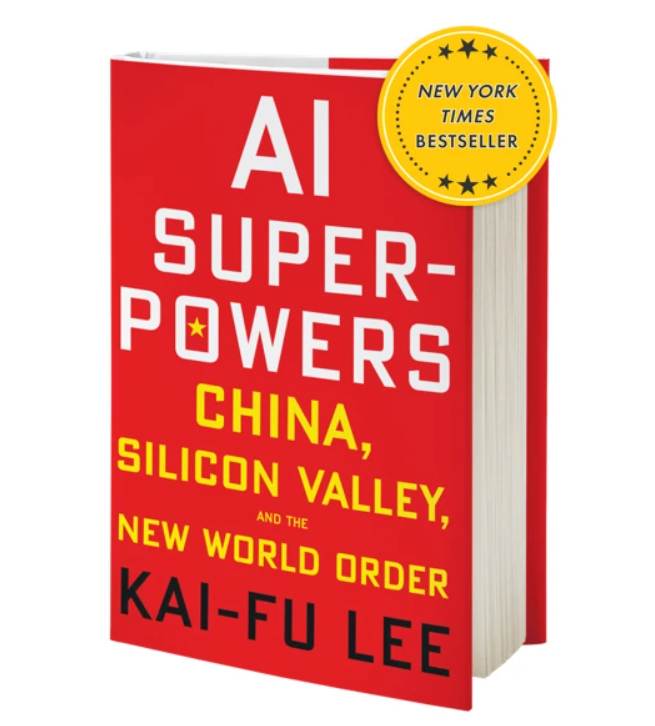
If you’re curious about AI and its impact on the world, check out AI Superpowers: China, Silicon Valley, and the New World Order by Kai-Fu Lee. This book isn’t like a regular textbook; it’s more about the story of how AI is changing the game between the United States and China. Kai-Fu Lee knows a lot about tech, and he shares interesting insights on how fast AI is moving and what it might mean for us all in the future.
The big idea I got from AI Superpowers is that the competition over AI isn’t just about who has the best technology. It’s also about different cultures and economies. Lee shows how China becoming a big player in AI is shaking things up around the world. He makes the case that working together and thinking about the ethics of AI is super important. This book makes you think about AI in a whole new way, focusing more on how it affects countries and the world’s economy, not just the techy details.
Ilija Sekulov, Marketing & SEO, Mailbutler

Predictive Marketing
Predictive Marketing offers practical insights into leveraging analytics and big data to predict customer behavior, improve marketing strategies, and enhance customer engagement. It’s particularly beneficial for marketers aiming to utilize data-driven decisions to optimize campaigns and achieve better outcomes, making complex concepts accessible for practical application in marketing efforts.

As the founder of MBC Group, where we’ve recently pivoted to AI-driven Marketing Solutions, I’m immersed daily in both the strategic and operational sides of artificial intelligence in the marketing world. This unique vantage point equips me with insights on how AI can dramatically transform businesses, making Predictive Marketing: Easy Ways Every Marketer Can Use Customer Analytics and Big Data by Omer Artun and Dominique Levin an essential read in my view. This book delves deep into the transformative potential of AI in understanding and predicting customer behavior, a cornerstone of our efforts at MBC Group.
A major takeaway from this book, and one that resonates deeply with our work at MBC Group, is the emphasis on leveraging AI not just for automation, but for creating deeper, more meaningful interactions and experiences for customers. For instance, our platform AiDen, an intelligent AI chatbot, is designed to redefine customer interactions across digital platforms. It’s not just about responding to queries but understanding the customer’s intent and delivering personalized experiences. This approach mirrors the book’s guidance on using AI for predictive analytics to not only react to customer actions but anticipate them, leading to more successful marketing strategies.
In practice, we’ve applied predictive analytics in several impactful ways. One example is through our content marketing strategies, where AI helps analyze and predict which topics or types of content will resonate most with our target audience. This isn’t just guesswork; it’s backed by data and analytics, aligning perfectly with the methodologies advocated for in ‘Predictive Marketing.’
Moreover, this book underscores the importance of data in crafting marketing strategies, a principle we live by in our work. Every campaign we run, every piece of content we create, and every customer interaction we facilitate is data-driven, ensuring we’re not just reaching our audience but engaging them in the most effective way possible.
In sum, Predictive Marketing aligns closely with the core principles of AI-driven marketing we advocate for and implement at MBC Group. It’s about using AI not as a tool for mere automation but as a means to understand, predict, and ultimately meet the evolving needs and expectations of customers in a digital-first world.
Matthew Montez, Founder, The MBC Group

The Age of AI: And Our Human Future
Reading “The Age of AI: And Our Human Future” offers insights into how artificial intelligence is reshaping global politics, society, and ethics. The authors provide a multidisciplinary perspective on AI’s impact, discussing both its potential benefits and risks. This book is crucial for understanding the strategic implications of AI and preparing for a future where human and machine intelligence are increasingly intertwined. It serves as a guide for policymakers, business leaders, and the general public to navigate the complexities of a rapidly evolving AI landscape.

I’d suggest reading The Age of AI: And Our Human Future by Henry A. Kissinger, Eric Schmidt, and Daniel Huttenlocher. In this book, Henry A. Kissinger, Eric Schmidt, and Daniel Huttenlocher really break down everything about AI. It’s not every day you get to read a book by three of the world’s leading thinkers, all collaborating to discuss AI and its impact on human society.
Basically, this book explains how AI differs from human intelligence and its ability to understand aspects of reality that we can’t. It also looks at the effects of AI on current politics and the emerging opportunities and risks it presents for democracy, security, and the global order.
I found the book informative, convincing, easy to read, and enjoyable. Kissinger and his co-authors use straightforward, engaging language, real-life examples, and personal stories to get their points across. To me, this book offers a clear roadmap to our current era and the future, a time unlike any we’ve experienced before. I think anyone who reads it will find it extremely valuable.
Rizki Kadir, Automotive Writer & Software Engineer, Our Own Cars

The Coming Wave
“The Coming Wave” by Mustafa Suleyman presents an urgent exploration of the risks and opportunities AI and fast-evolving technologies pose to global order. Suleyman, a co-founder of DeepMind, examines how these technologies could bring immense prosperity but also challenge national stability and global governance. The book establishes “the containment problem” as our era’s critical challenge, urging a balanced approach between innovation and the ethical use of technology.
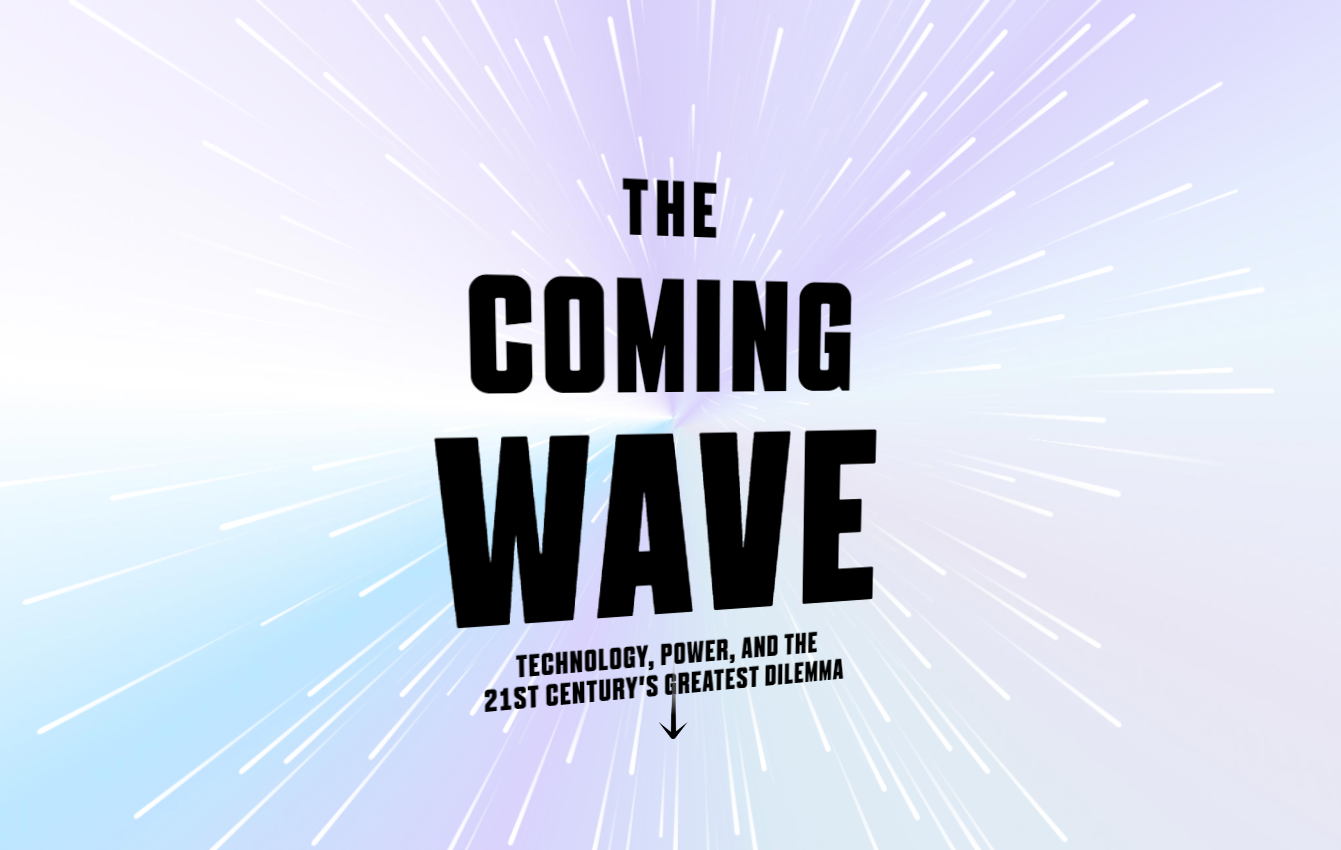
I recently read The Coming Wave by Mustafa Suleyman, and it’s a book I highly recommend for anyone looking to understand the scope and implications of artificial intelligence (AI). My biggest takeaway from the book is the dual nature of AI as both a tremendous force for good and a potential source of unprecedented challenges.
Suleyman explores how AI can revolutionize industries, enhance our quality of life, and solve some of the most pressing problems facing humanity, such as climate change and healthcare. However, he also highlights the ethical considerations and societal impacts of rapidly advancing AI technologies, highlighting the need for robust governance and ethical frameworks to ensure these technologies benefit all of humanity. It’s a compelling read that offers a balanced view on the future of AI, making it essential for anyone interested in the field.
Dr. Mark Farrell (FIA), Founder, CEO, Associate Professor & Actuary, ProActuary Jobs
Deep Learning
This book introduces foundational concepts and advanced techniques in deep learning. The book provides a comprehensive overview of neural networks, focusing on their architecture, functioning, and applications. It’s beneficial for students, researchers, and professionals seeking to understand or develop deep learning models, as it bridges theoretical concepts with practical implementations.

If you’re ready to tackle the complexities of artificial intelligence, Deep Learning by Ian Goodfellow, Yoshua Bengio, and Aaron Courville is my top recommendation. This book stands out for its thorough exploration of the mathematical and conceptual underpinnings of AI, from linear algebra to machine-learning practices.
My key takeaway is the critical insight that the power of neural networks lies not just in their expressiveness but in our ability to use them to uncover the true structure hidden within our data. This perspective is invaluable for anyone looking to deepen their understanding of how AI can be harnessed effectively.
Tobias Liebsch, Co-Founder, Fintalent.io

How to choose the right AI book for you
- Align your AI book choice based on your current knowledge level
- Identify your learning goals to pick the right AI book
Consider your current knowledge level
The fast-paced field of AI can be overwhelming with its technical jargon and complex theories. Picking the right book that matches your current understanding level can make a huge difference. Reading can be a fulfilling experience if you’re familiar with the basics discussed, rather than feeling lost with advanced concepts.
Beginners, consider books that explain AI concepts in layperson’s terms that focus on real-world applications. These books usually start from the ground up, defining what AI is, its history, and its potential implications. Intermediate-level learners might choose books that delve deeper into the implications of AI, discussing specific topics like natural language processing, machine learning, and neural networks. Advanced AI learners can opt for texts engaging with frontier topics like AI ethics, quantum computing, and advanced deep learning.
Identify your learning goals
Aligning your book choice with your learning objectives is key to benefit from your reading time fully. If you’re looking to understand the societal impact of AI, books exploring its philosophical and ethical implications would be suitable. If the aim is to grasp the technical aspects, then consider texts focusing on neural networks, deep learning, or AI programming.
Keep in mind that some books provide a general overview of AI, while others focus on specific sectors. For example, if you’re in the healthcare industry, books discussing AI’s role in modern healthcare would be very relevant.
Tip – review the table of contents.
Never underestimate the power of a well-organized table of contents. It can offer priceless clues about the depth and breadth of the content you are about to consume. Is it covering topics you want to learn? Does the progression of topics make sense to you? This quick review can save you countless hours.
By discerning your current AI knowledge level and identifying your learning goals, you can choose a book that will effectively help you grasp AI concepts and their implications in your field. The right book can not only deepen your understanding but also spark new ideas and insights.
Your AI-literacy game plan
Absorbing our expert’s recommendations for the top books in AI, it’s clear that understanding Artificial Intelligence in 2024 is as easy as diving into the wealth of knowledge these books hold.
Whether you have a mathematical and conceptual background, are a pro with supervised and unsupervised learning, or barely have a basic understanding of the concept of AI, there’s a book out there for you!
Your next step in this journey to understanding (or mastering) AI this year is, therefore, quite simple – pick a book from this list, dive right in, and start forming a new perspective on AI.
Inge von Aulock
I'm the Founder & CEO of Top Apps, the #1 App directory available online. In my spare time, I write about Technology, Artificial Intelligence, and review apps and tools I've tried, right here on the Top Apps blog.
Recent Articles

The Crowdstrike outage of 2024 sent shockwaves through the cybersecurity world. On July 19, a defect in a Windows content update brought down...
Read More
The Crowdstrike outage of 2024 sent shockwaves through the cybersecurity world. On July 19, a defect in a Windows content update brought down...
Read More
On July 15, 2024, Microsoft and CrowdStrike faced a global outage. This disruption affected millions of users worldwide. Azure services, Microsoft 365 apps,...
Read More